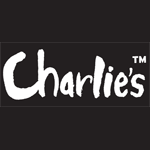 Despite some over cooked fund raisings causing a few ripples recently . A couple of high profile trade sales underline the value that a great brand brings to a business.
Despite some over cooked fund raisings causing a few ripples recently . A couple of high profile trade sales underline the value that a great brand brings to a business.
There’s been a lot of talk recently about whether there’s another tech bubble forming, but I see two separate themes emerging. On the one hand there’s companies like Color and Pandora that raised funding purely on the strength of an idea and a solid team. Neither company has revealed how or when they will generate revenue. There was much hand wringing after Color’s VC round and Pandora’s share price crashed almost immediately post IPO. These are worrying signals in a market where entrepreneurs are being told to go out and raise as much cash as possible, whilst times are still good.
On the other hand, there are solid companies with good revenues and little debt that are cashing up through trade sale opportunities. The Go Daddy transaction was a case in point. This deal had been in the making for some time and looks like a win-win for both the founders and the institutional investors in terms of timing. Obviously it was of great interest to us at iWantMyName because GD are the largest domain registrar on the planet, with around a quarter of the entire global market.
Closer to home, the $139M buyout of listed drinks maker Charlies by Japan’s largest brewer Asahi also looks like a big win. What all of these companies have in common are great brand assets. Where they differ is that some of them not only do not generate profits, but in some cases the value proposition is less than clear. Even a great brand cannot compensate for these failings. Winning companies have recognisable brands, high performing systems or technologies and a means of generating repeating revenues. You’d have to be a right Charlie to invest in a company that didn’t have these attributes.
You can follow the author on Twitter @GeniusNet

 Unlimited Realities is living up to its name. Last year the company inked a deal to provide its gestural interface software for integration into Dell manufactured computers. Now the door has been opened by computer chip maker AMD. Fingertapps was
Unlimited Realities is living up to its name. Last year the company inked a deal to provide its gestural interface software for integration into Dell manufactured computers. Now the door has been opened by computer chip maker AMD. Fingertapps was  “It was a dark and stormy night”. That’s how my Grandad used to begin his bedtime stories when I was a little lad. He was both a technology innovator and an entrepreneur, so hopefully some of it rubbed off on me. There’s certainly a lot to be said in favour of story-telling and narrative as a means of passing on knowledge.
“It was a dark and stormy night”. That’s how my Grandad used to begin his bedtime stories when I was a little lad. He was both a technology innovator and an entrepreneur, so hopefully some of it rubbed off on me. There’s certainly a lot to be said in favour of story-telling and narrative as a means of passing on knowledge. A recent joint study by Silicon Valley VC firm Blackbox and academics from Stanford and Berkeley universities provides some interesting insights into what makes Internet start-ups successful. The project involved 650 web start-ups predominantly investor funded and based in Silicon Valley. However the findings also have relevance for tech firms outside of the Valley ecosystem.
A recent joint study by Silicon Valley VC firm Blackbox and academics from Stanford and Berkeley universities provides some interesting insights into what makes Internet start-ups successful. The project involved 650 web start-ups predominantly investor funded and based in Silicon Valley. However the findings also have relevance for tech firms outside of the Valley ecosystem. It’s exciting being at the forefront of innovation in your industry and riding a growth wave. But there are dangers lurking in the breakers for service oriented web companies with big goals.
It’s exciting being at the forefront of innovation in your industry and riding a growth wave. But there are dangers lurking in the breakers for service oriented web companies with big goals.
 Ever since the movie Minority Report hit our screens we’ve all been fascinated by the promise of touch screen technology. I think touch tech is going to be big this year, which is one reason why I’m currently working with a young entrepreneur on an interesting project involving tablets. More about that soon. In the meantime, there are other companies in New Zealand that are already well advanced in this field.
Ever since the movie Minority Report hit our screens we’ve all been fascinated by the promise of touch screen technology. I think touch tech is going to be big this year, which is one reason why I’m currently working with a young entrepreneur on an interesting project involving tablets. More about that soon. In the meantime, there are other companies in New Zealand that are already well advanced in this field.